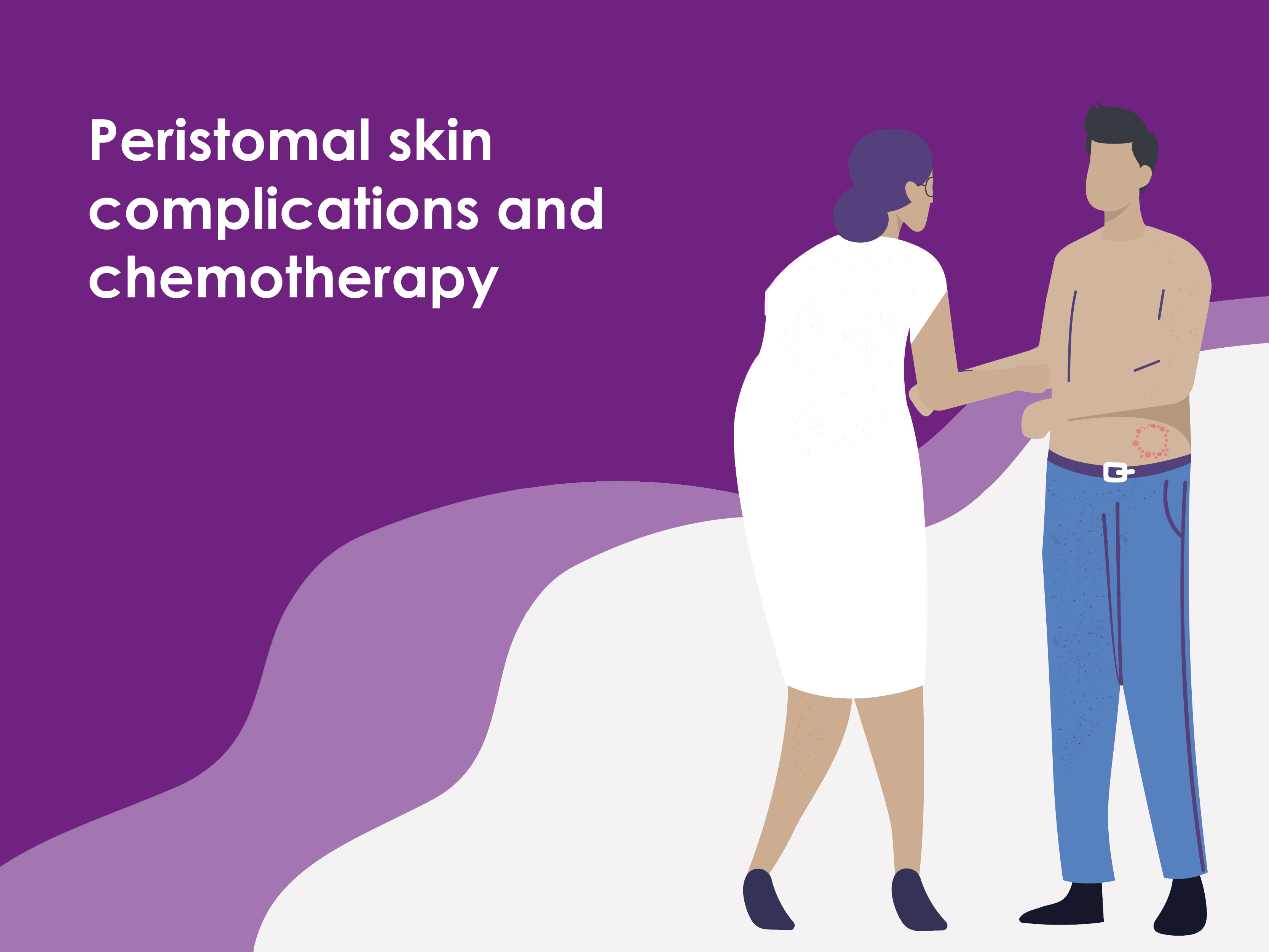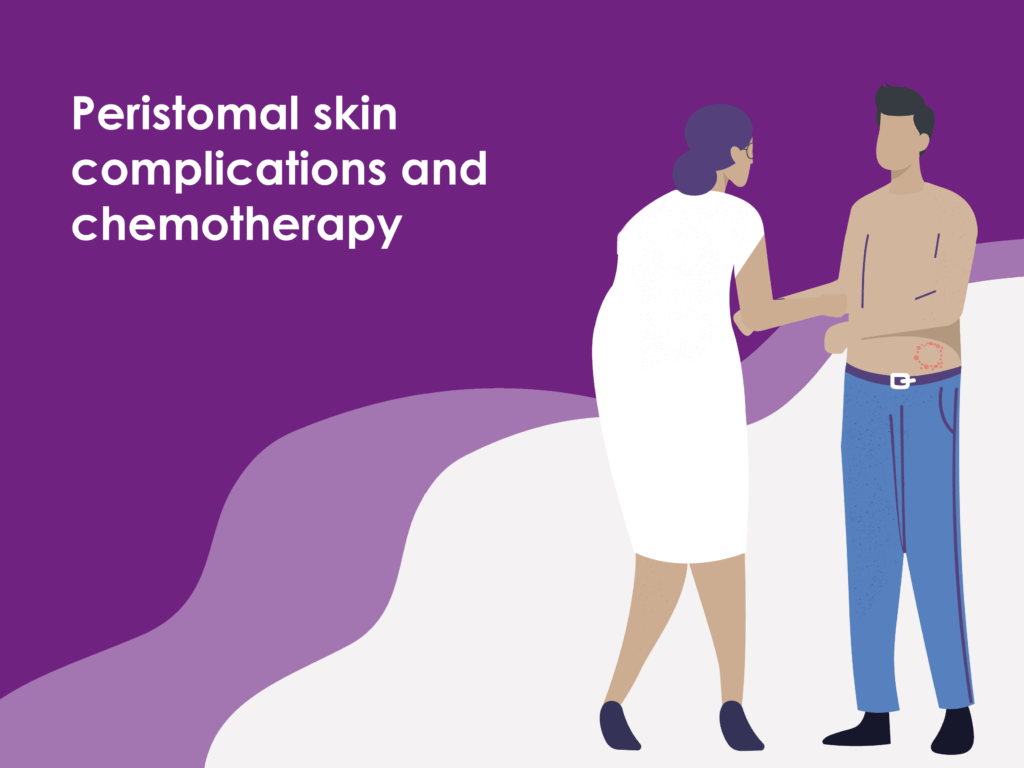 US
US


Peristomal skin complications and chemotherapy


In practice, maintaining the integrity of peristomal skin is vitally important for ostomates. Prevention is always better than a cure. The time and impact of additional treatments to resolve peristomal skin damage may lead to a negative impact both physically and emotionally.
Aside from the impact of increased fluid output can have on it’s potential to cause leakages and moisture associated skin damage, some types of chemotherapy can also irritate skin.
Some chemotherapy drugs can cause skin to become dry, itchy, darker, or peel. In addition, some may develop a rash, experience pigmentation changes or sunburn easier, photosensitivity.
As such, managing peristomal skin becomes even more important.
Here are some tips to share with ostomates undergoing chemotherapy should they experience skin complications as a result of their treatment:
6 tips for preventing peristomal skin complications during chemotherapy
- Keeping peristomal skin care routines to a minimum may prevent irritation keep it simple and try to just use warm water.
- If skin flares up around the stoma consider the products being used. The ostomate may have developed a sensitivity to their current ostomy products that can be helped by switching manufacturer.
- If peristomal skin gets dry or itchy, perhaps recommend a suitable topical treatment for the affected area.
- Peristomal skin needs to be kept dry and therefore ensuring a secure system in imperative. Using an ostomy seal/barrier ring or alcohol-free paste for an extra layer of protection would be advisable during chemotherapy.
- Water containing chlorine can make rashes worse, so reducing swimming while the rash is causing issues could help.
- Prevention of MARSI (Medical Adhesive Removal Skin Injury) is important to stop peristomal skin stripping – Consider using an alcohol-free adhesive remover spray for removing the pouch/bag.
- If peristomal skin is dry, consider using an alcohol-free barrier protection spray or wipe around the stoma to help with pouch adhesion. Also helping to create a secure seal.
Finally, always remind ostomates to not delay in contacting their stoma care or oncology nurse if there is any sign of infection or if they are concerned at all about skin condition.

References
1. Nagano M, Ogata Y, et al (2019) Peristomal Moisture-Associated Skin Damage and Independence in Pouching System Changes in Persons With New Fecal Ostomies. J Wound Ostomy Continence Nurs. 2019;46(2):137-142.
